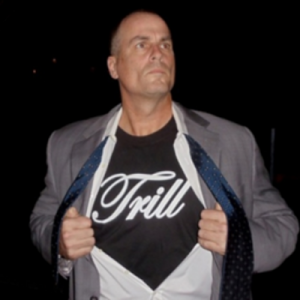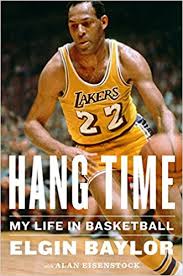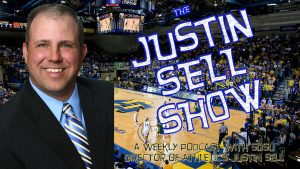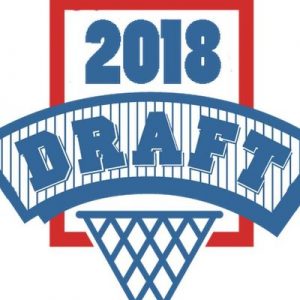The Knight Commission on Intercollegiate Athletics is an independent organization that promotes reforms to support/strengthen the educational mission of college sports. Formed in 1989, the Commission has a diverse composition that includes university presidents, former college athletes, and leaders in the field of higher education. At its meeting last May in Washington, DC, which HoopsHD was invited to attend, the Commission discussed recommendations made by the Commission on College Basketball that is chaired by Condoleezza Rice. 1 of the many panelists that day was Jay Bilas, an ESPN college basketball analyst who is also an attorney. HoopsHD’s Jon Teitel got to chat with Mr. Bilas about a wide array of topics including paying players, recruiting, and transfers.
Coach Mike Krzyzewski’s 1982 Duke recruiting class of you/Johnny Dawkins/Mark Alarie/David Henderson still ranks as the highest scoring single class in college basketball history: did you realize at the time how prolific your class was, and do you think that anyone will ever break your record? We did not even think about it at the time: we just went out there and played. I doubt the record will be broken because the best players today do not end up staying in college for 4 years. The other 3 guys in my class were good enough to go pro early if they had wanted to.
You won the 1991/1992 NCAA titles as an assistant to Coach K: what did it mean to you to win a pair of titles? It was a great experience and those teams were extraordinary: it was a fantastic learning experience for me.
I wanted to follow up on several things you have stated in interviews earlier this year:
“The problem is not the players and the problem is not the money: the problem is the NCAA’s rules”: if the NCAA changes its rules, will all the money in college athletics still have an impact? If they change the rules then the scandals will go away. Think about it: if you gave a player $5000 in cash just 3 years ago then it would have been scandal but now it happens everywhere. These are made-up rules and everyone is in the free market except for the players: this is not okay. The NCAA is living in a fantasy world where they generate billions of dollars and still call it amateur athletics.
“There is no way that any school can be vigilant enough to vouch for the eligibility of every single player”: why not, and if a player breaks a rule on his own then could we just discipline him and leave his school alone? We can do all kinds of things but I would argue that we should change the rules to be reasonable. A school would have to hire an investigator to follow a player around all the time, which is impossible. There were very few players in my era who were strictly eligible. I do not think there is even a reasonable debate about that. No other student is told what they can earn/accept while at school: that is a huge disconnect.
“[Condoleezza Rice’s Commission on College Basketball] is not looking at name and likeness rights for the players from what I am told…I know they are not looking at pay for play”: do you think it is good/bad for the Commission to not have looked at these issues? It is just incomplete: you cannot make recommendations about college sports without examining the money and its impact on the entire enterprise. I think it rang quite hollow that they could not go into name/likeness rights due to pending litigation, yet Rice and Commission member David Robinson subsequently made public statements about the issue so it is clear that they have judgments. I differed with their finding that a framework had to first be established by the court: I think it has to be established by the NCAA, which would render the current litigation moot. The Commission could have done whatever they wanted.
“The shoe companies are not out to break NCAA rules”: are they just out to make money, and do you think they care whether they break any rules while trying to increase their profits? Of course they are out to make a profit and gain a greater share of the market in a variety of areas, but no company I know of is trying to break NCAA rules. There might be individuals who do things they should not be doing but breaking rules is not a corporate strategy of any publicly-traded company that I know.
“I think what they are going to do is change the recruiting model…I have heard a lot about going back to scholastic recruiting, which means recruiting out of the high school”: what impact do you think this would have on the sport? It will make no difference at all: it will be exactly the same. There might be a different power dynamic but it will not change the behavior of anyone. The money will just flow in a different direction as water does if you put in a dam: you cannot stop it from flowing. Nike just signed a deal to sponsor every single high school in Oregon. People forget that we had scholastic recruiting years ago and there were scandals back then as well: the only difference now is that the FBI and the US Attorney’s Office for the Southern District of New York are involved. Not 1 game has been canceled and not 1 check has failed to be cashed.
In 2015 you gave a hypothetical example of how a school could pay a player: “We will offer you a 3-year contract for $100,000/year plus room/board/books. A condition of the contract is you will have to remain in good academic standing at all times. If you fall out of academic standing, we have a right to terminate the contract. If you get arrested or charged with a crime/misdemeanor we can terminate the contract. If you decide to leave, you cannot play anywhere else for a year: cannot play in the pros or in college. You cannot go compete against us because we have made an investment in you. We cannot force you to play here but we can keep you from playing somewhere else”:
How did you come up with the idea? If universities hand money to anyone they will insist upon a contract. A school could offer a 3-year contract with provisions/conditions that would be negotiated at arms’ length between the school and the player. I went to Duke, which has approximately 30,000 employees, so they know exactly what everyone is worth. They know who to recruit and who to put onto the court to try to win games. Everyone else operates in a free-market environment and players should too.
What is “good academic standing”, and does that incentivize a player to take easy classes so that he does not risk having his contract terminated? You just made the case for why there should not be academic standards: instead of a disincentive for flunking out it would encourage players to take an easier path rather than challenging themselves. If you want a contract to define “good academic standing” then you can: it is up to each school to determine what majors are acceptable, whether the GPA needs to only involve core courses, etc. NCAA President Mark Emmert used an example of not telling a dancer that they have to go to Tulane if they want to become a professional dancer…but a kid can go to Tulane on a scholarship and actually major in dance! If a basketball player decided to major in dance then people would be up in arms so we should just let each school/student make their own decision.
If a player has a breakout year as sophomore but his coach decides to leave, would he just be stuck at his school for 1 more year if he wanted to play basketball? The natural consequence is that players could sign contracts with universities. Sitting out for a year after transferring is the equivalent of a non-compete provision in a contract. If you quit your job under a contract then you are violating the terms and your employer does not have to pay you, but in certain circumstances you also cannot go elsewhere to work. It is up to the parties: some states allow non-compete provisions and some do not, but if both the school and the player agree to it then it is not my concern.







